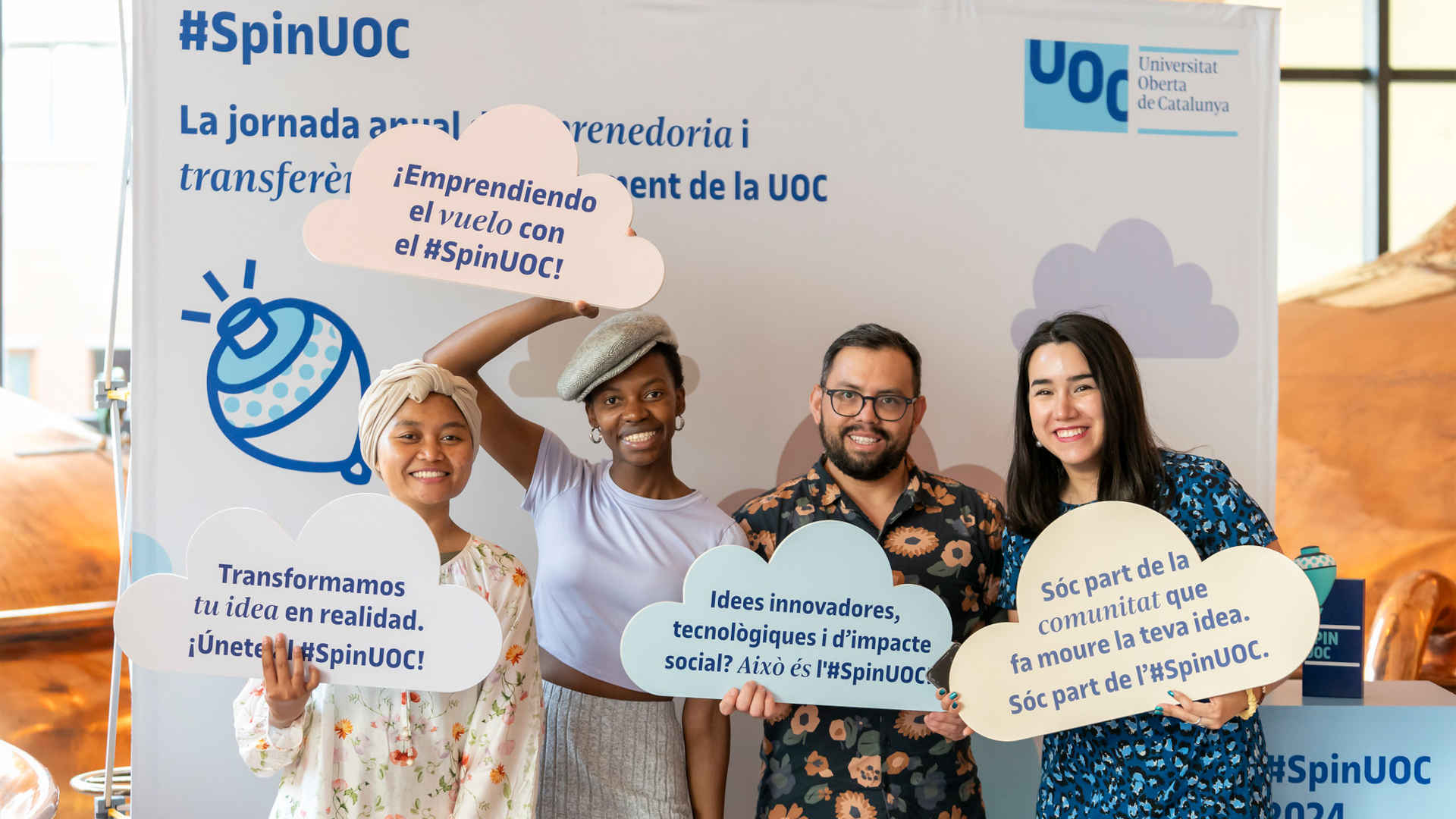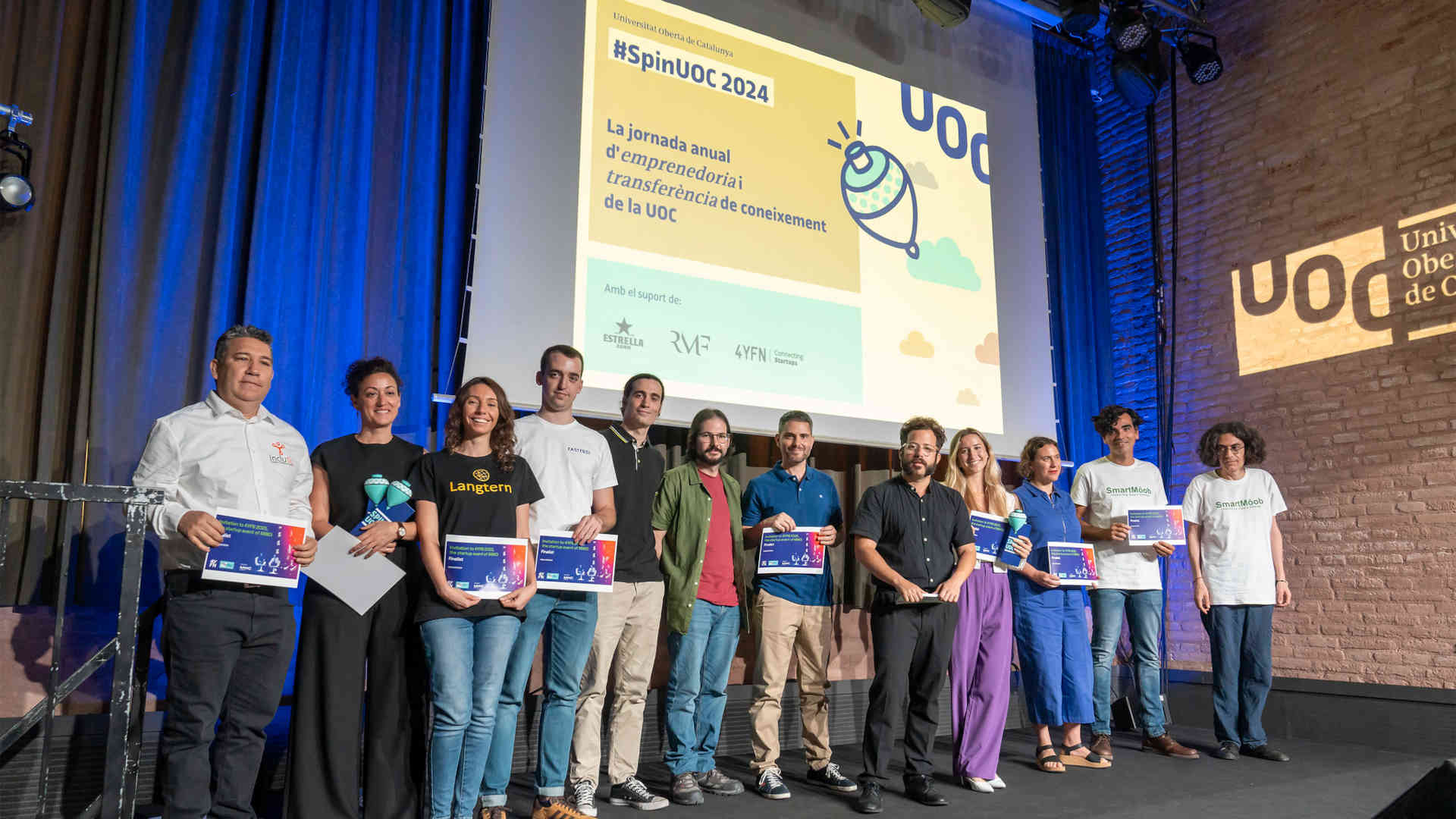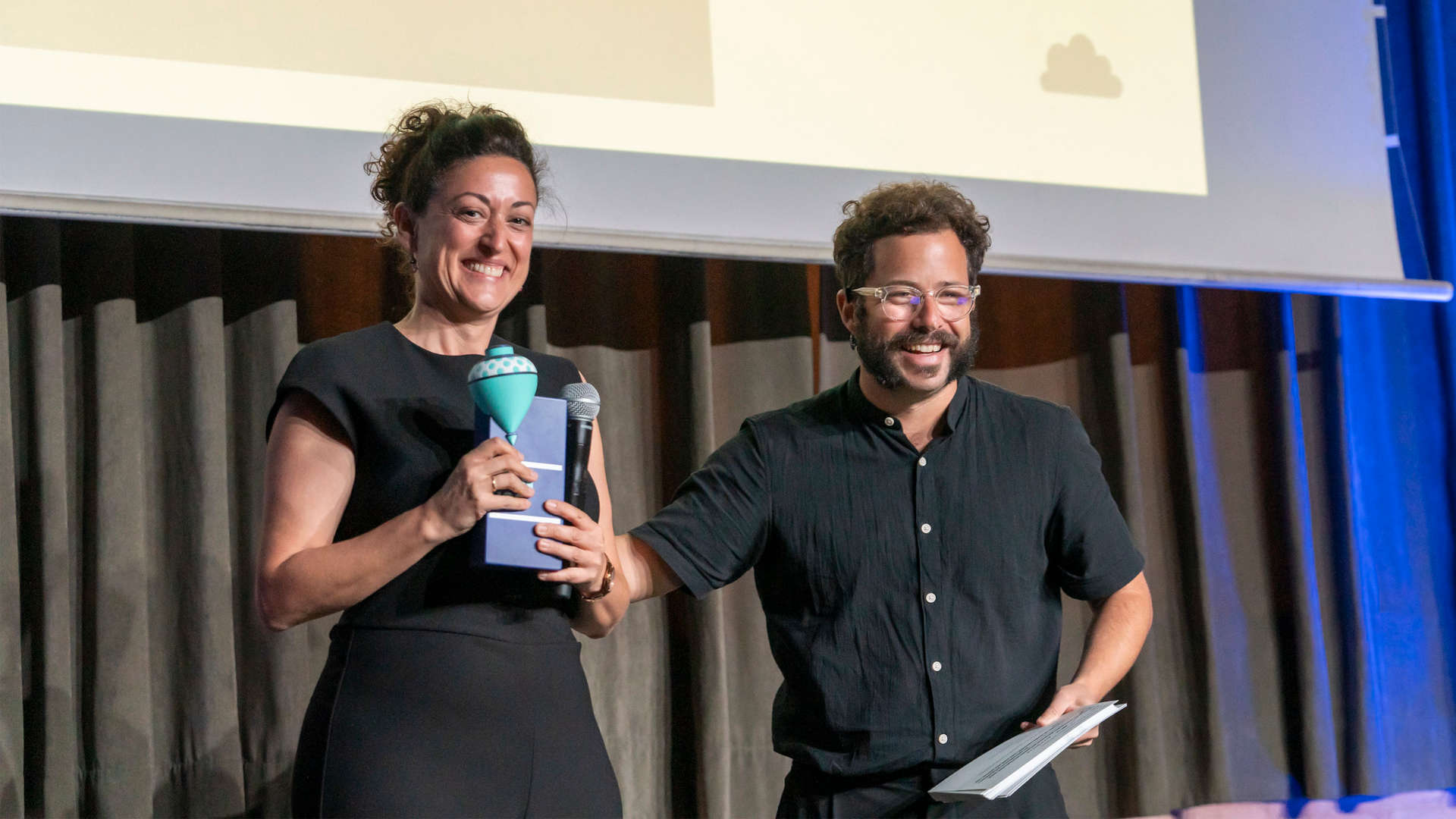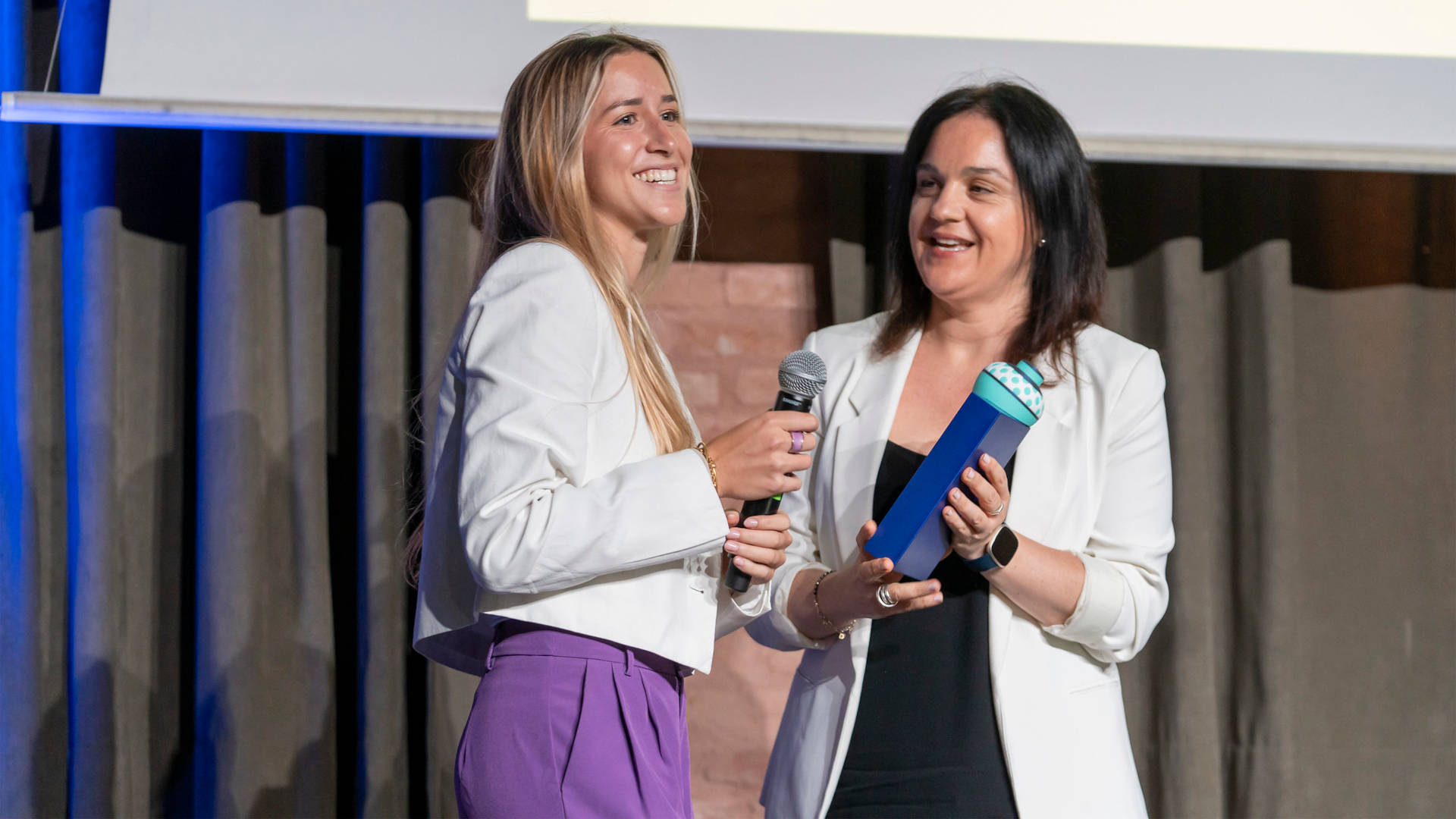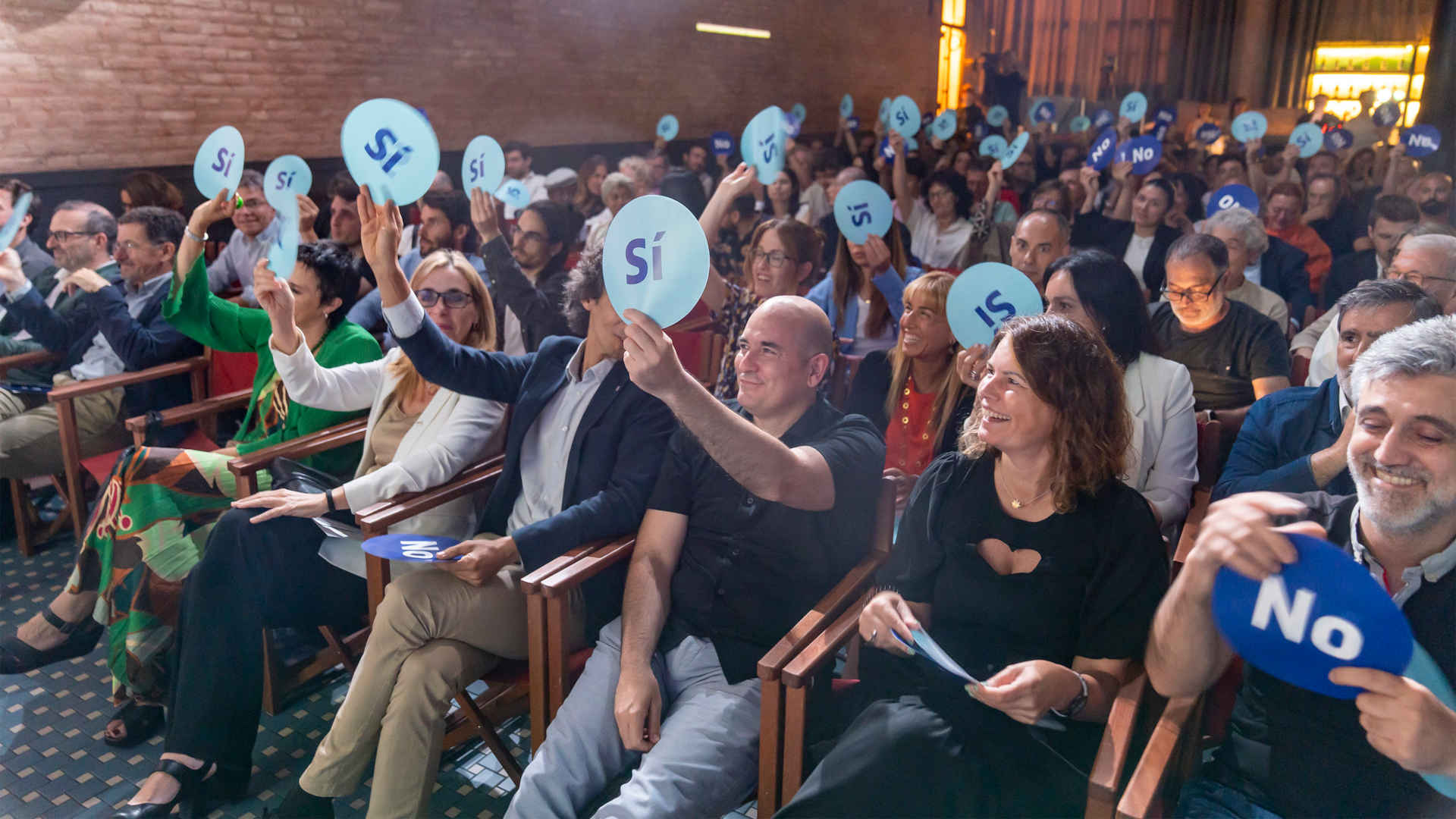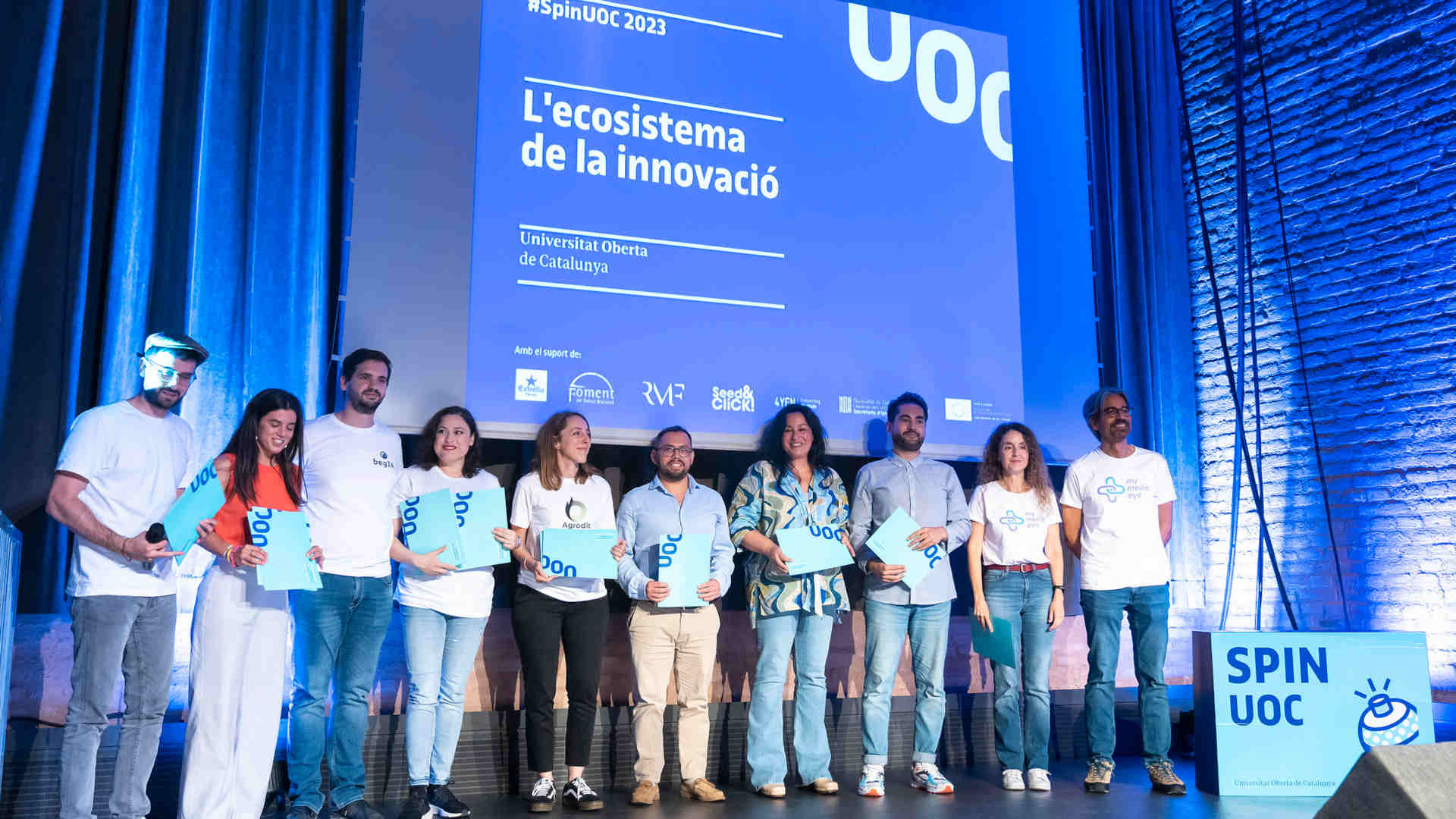New call opened for the SpinUOC entrepreneurship programme
The programme will award two prizes of €10,000 and one of €3,000Any member of the UOC community can submit proposals for projects to SpinUOC
SpinUOC, the entrepreneurship and knowledge transfer programme of the Universitat Oberta de Catalunya (UOC), has opened a new call. Members of the university community aiming to make their way in the world of entrepreneurship have until 19 January to submit their proposals for their projects and ideas to the latest edition of the programme. This initiative aims to promote projects by providing specialized support, funding and links to the ecosystem and its major events.
The programme is coordinated by the Hubbik platform and aimed at the entire UOC community, including students – a bachelor's or master's degree final project can become a business project – alumni or the university's teaching, research and administrative staff. In addition to being part of the UOC community, the only requirements are having a business idea or project and a desire to make it a reality. Fill in this form to take part!
“The UOC's mission is to contribute to projects being developed, based on the understanding that knowledge goes both ways, and that the university community is home to many opportunities for this spark of entrepreneurship to light up”
What does the programme offer?
Regardless of the stage of development, all projects submitted to SpinUOC 2025 will have access to entrepreneurship training materials. The projects' leaders will have to prepare a business model canvas, a 90-second pitch and an executive summary. They will then be whittled down to a shortlist of up to 20 candidates. The successful entrants will receive personalized advice before the eight finalists are selected.
The finalists will receive mentoring and take to the stage at a final event to be held on 26 June on the UOC Campus in Barcelona. Three awards will be presented at the event: a prize for the best entrepreneurial project, which will be awarded by a jury of experts; a second prize for the project with greatest social impact, awarded by the Ramon Molinas Foundation; and a third prize for the best presentation, with the winner chosen by the audience attending the event. As was the case last year, the winners of the two first prizes – which cannot be awarded to the same project – will each receive a cash prize of €10,000, and the winner of the audience prize will receive €3,000. All the finalists will also receive a ticket to attend 4 Years From Now (4YFN) – the leading international gathering for start-ups – at the Mobile World Congress in 2026.
What past winners have to say
Elena Muñoz Marrón, co-principal investigator of the Cognitive Neuroscience and Applied Data Science Lab group (NeuroADaS Lab) at the eHealth Center and a member of the Faculty of Health Sciences at the UOC, took home both the social impact award and the audience prize from the last edition of SpinUOC for her start-up UNNE Neurostimulation Institute. After the final, Muñoz said that "what makes me feel proudest is not so much what I have achieved today, but the road I travelled to get here, all the effort, work and hours dedicated to the project so I could attend an event like this and receive this recognition. It has all been worth it."
Meanwhile, Cristina Grau, a student on the UOC's University Master's Degree in Data Science, who won the prize for best entrepreneurial project in last year's edition with Twintual, said after winning the prize that "receiving this award from the UOC brings us a lot of value, including for future investment rounds. Being able to say that we have collaborated with the university is amazing." She added that "if I were talking to someone who wants to pursue an idea, I would ask them if they are willing to break down barriers, to attain what is on the other side of them, because setting up a start-up is obviously a roller coaster ride. Then if the answer is yes, I would tell them to go for it." Grau concluded that "SpinUOC gives us a major boost, and we have felt very strongly identified with its values."
Entrepreneurship, part of the UOC's DNA
At last year's event, UOC Rector Àngels Fitó said that "the university's mission is to contribute to projects being developed, based on the understanding that knowledge goes both ways, and that the university community is home to many opportunities for this spark of entrepreneurship to light up. What we have to do is bring together this enthusiasm and these initiatives, and give them the support they need so that they come to fruition."
Fitó added that "we have to make sure that the path to entrepreneurship is a process of maturing, allowing us to achieve a minimally viable product that ensures that the first steps are possible. I think part of it involves the entrepreneur's initial commitment, and then a great deal of support to help them think about the scope of the idea to be developed."
According to the rector, the SpinUOC projects come in response to "the desire to solve problems and challenges, usually through technology. This is part of the UOC's DNA. What we're doing is maintaining a dialogue and keeping our feet on the ground." She also highlighted how, throughout the academic year, the UOC looks to sow the seeds of entrepreneurship with other initiatives beyond SpinUOC, such as the EduTECH Emprèn programme or the Invergy investment vehicle.
SpinUOC is an initiative of Hubbik – the UOC's platform for promoting entrepreneurship – and is supported by the Ramon Molinas Foundation and 4YFN.
UOC R&I
The UOC's research and innovation (R&I) is helping overcome pressing challenges faced by global societies in the 21st century by studying interactions between technology and human & social sciences with a specific focus on the network society, e-learning and e-health.
Over 500 researchers and more than 50 research groups work in the UOC's seven faculties, its eLearning Research programme and its two research centres: the Internet Interdisciplinary Institute (IN3) and the eHealth Center (eHC).
The university also develops online learning innovations at its eLearning Innovation Center (eLinC), as well as UOC community entrepreneurship and knowledge transfer via the Hubbik platform.
Open knowledge and the goals of the United Nations 2030 Agenda for Sustainable Development serve as strategic pillars for the UOC's teaching, research and innovation. More information: research.uoc.edu.
Experts UOC
Press contact
-
Anna Torres Garrote

